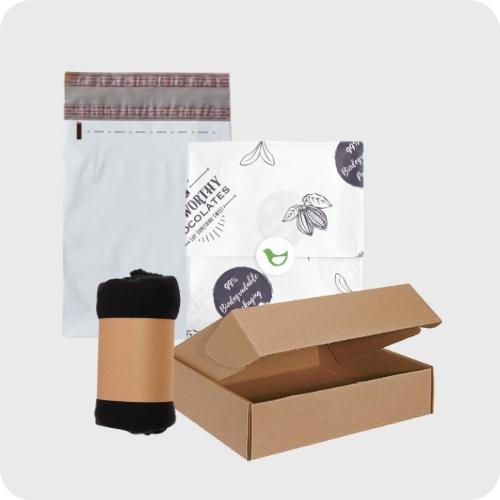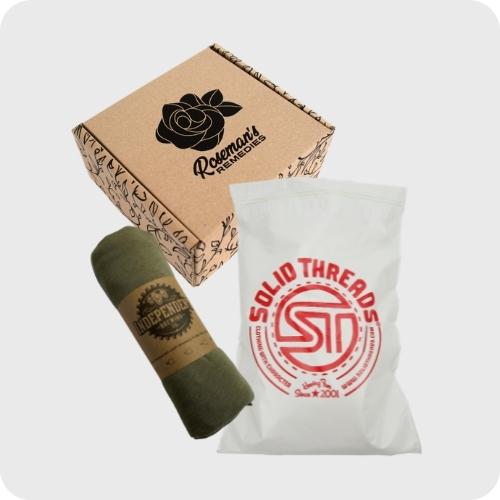Direct-to-Consumer (D2C): What It Means, Challenges, And More
Posted By on Oct 20th 2024
Direct-to-Consumer (D2C): What It Means, Challenges, And More
by Saloni Doshi • published October 21, 2024 • 10 min read
Direct-to-consumer is a business strategy where businesses sell their products directly to consumers. No middlemen, just straight business.
In a world where department stores are failing, D2C business is on the rise, thanks to eCommerce. This is great news for business owners, as they no longer have to bend their business to the demands of their retailers. They can craft a company that their target customers love.
But it’s not all sunshine and daisies; cutting out the middleman also means business owners must do the grunt work to gain an audience. Let’s look at the many benefits and challenges of the direct-to-consumer model.
What Does D2C Mean?
D2C stands for direct-to-consumer, which, at the simplest level, means that a brand sells directly to its end customers rather than selling through retailers.
Consider some of the world’s most well-known brands, like Crest. When you need more toothpaste, you don’t pop down to the local Crest store. You buy Crest Toothpaste at Walgreens or Target. Historically, this has been the most common way for consumers to connect with brands.
Online stores are changing this paradigm by cutting out the middlemen. Up-and-coming D2C brands sell to their end consumers via eCommerce shops, where customers learn, shop, purchase, and engage directly with their favorite brands.
eCommerce companies looking to make modern changes might consider pivoting toward this more direct business model. Not only will it cut costs associated with middlemen, but it may very well be the eCommerce approach of the future.
As you can see from the below chart, D2C eCommerce stores have skyrocketed from $102.1 billion in 2020 to $169.39 billion in 2023. This number is expected to grow to $226.93 billion in 2025 as more shoppers prefer the online experience.
Source: Unsplash
Why Are So Many Companies Pursuing This Business Model?
The D2C eCommerce business model allows more control over your business and product. Although using sites like Amazon and Etsy can help you reach a larger audience more efficiently, it adds a lot of steps to the sales process. A D2C approach is much more straightforward. Here are some of the most significant benefits of the direct-to-consumer business model.
Growing demand
According to Statista, 70% of Gen Z shoppers order from D2C businesses, mainly due to the rise of TikTok and social media influencers. In the past, retailers were a necessity for businesses. Now, they’re becoming a barrier between companies and their customers. Why should business owners share their profits with retailers when they can more easily reach their target audience through various online channels?
Higher gross margin
In traditional models, brands sell to retailers who markup products by 50-100% to sell to end customers.
If your product sells through a retailer for $10 per unit, you get $5, and your retailer gets $5. Conversely, if you sell that product directly to your customers on your website, you can sell it at $7.50 per unit, creating a higher profit margin and a lower price for the customer. It’s a win-win.
More control over price
When you work with a retailer, you can’t make last-minute price adjustments; you have to go through the proper channels.
Although D2C doesn’t mean that you can constantly change your prices, it does mean that you can run last-minute sales, add freebies to purchases, or instantly lower the price of a product that isn’t selling well.
Price setting is a big part of your business strategy, but working with retailers makes it challenging. Adopting a direct-to-consumer approach gives you much more flexibility in this important area.
Sell with your brand story, not just with your price and label design
Your products compete with similar brands sitting side-by-side on the shelf at a retailer. With D2C, once a potential customer has landed on your website, you have their attention and focus. You can take the time to tell your story, showcase the unique attributes of your products and supply chain, and showcase videos and testimonials.
Your sustainability story could become a big part of your business success. According to McKinsey, 85% of consumers make purchasing decisions based on sustainability. If you have cultivated a strong sustainability strategy in your eCommerce business, then shout it from the rooftops! Information-rich websites, a key tenet in direct-to-consumer businesses, can be a great way to gain customers and become a sustainability leader in your industry.
More control over your packaging
Traditional brands need to make packaging decisions that align with the demands of their retailers. If a retailer requires that all apparel comes in clear poly bags, you must ship your goods in plastic. You have much more control when you ship directly to your consumer (especially if you don’t use a 3PL partner for fulfillment). You can do that if you want your customer’s first impression of your products to be 100% recycled, recyclable packaging.
This isn’t just important to sustainability-minded customers. Globally, governments are pushing for plastic-free packaging and sustainable supply chains. By investing in sustainable packaging now, you can ensure that you stay ahead of the curve in terms of compliance.
More agility in developing and testing new products, services, and marketing strategies
Going through a retailer slows down the entire innovation process. If you run a retail brand and want to develop t-shirts printed with algae ink, you can’t just create the product and see how it sells. You have to produce enough inventory and convince your retailers to stock them, and then you can see how it does on the market. This requires a larger budget without guaranteeing the product's success. Conversely, in a direct-to-consumer approach, you can start small with just a handful of t-shirts to see how they do. From there, you can adjust your product until it’s popular.
Similarly, if you want to experiment with helping customers finance their purchases with you, you can quickly plug in an app like Affirm and see if this increases conversion. Or you can offer an add-on service to help customers use your products effectively. This type of customer engagement and service testing is impossible if you sell through retailers.
Customer data that can help you personalize your website, marketing, and products
You probably don’t know who buys your products when you sell through retailers. Your retailers may get this information, but they don’t often share it with brands (particularly smaller, independent brands that don’t make up a significant portion of their sales).
On the other hand, when you sell through your website, you get to know your customers a lot better. All that information helps you build better products, personalize customer messages, improve your website, and more. Explore tools such as website heat mapping, website conversion funnels, newsletter statistics, and paid ads and keyword data analysis.
Source: Unsplash
Challenges of Direct-to-Consumer Selling
If D2C is so great, why isn’t everyone doing it? The answer is simple: it’s a lot of work.
Although direct-to-consumer companies have much more control over their products, marketing, and pricing, this control comes at a price. They also have to be in charge of creating their website, gaining traffic to that website, and cultivating brand recognition.
Starting that from scratch poses a huge talent, especially if you’re a small team. You’ll have a lot of creativity to get your business off the ground. Here are some of the biggest challenges facing direct-to-consumer companies.
Customer acquisition
In traditional models, companies sell their products to retailers that have already done the legwork to get customers into their shops, whether online or brick-and-mortar. Companies still need to market their products to compete with other brands, but the audience is there.
Direct-to-consumer companies have the opposite challenge. They must compete with thousands of other eCommerce businesses to earn attention and get people on their site, but once their customers are there, they have their full attention. However, getting customers onto your site is much more complicated than it might seem.
D2C brands typically acquire customers through a few channels:
-
Organic search and SEO: When companies rank for critical keywords in their industry, their website comes up in user search results. Showing up in these results drives “organic” traffic to their site and hopefully converts some customers.
-
Social media: Many new, independent brands find social media highly effective at building and growing brand awareness and a community. In fact, 85% of Gen Z shoppers say that social media impacts their purchasing decisions. TikTok, in particular, is a huge platform for D2C eCommerce businesses to get their brand name out there.
-
Influencer partnerships: Many younger shoppers prefer buying products their favorite content creators recommend. D2C brands can leverage the built-in audience of established content creators to promote their products and reach a wider audience.
- Paid advertising: Many eCommerce brands launch and grow through paid ads. Whether through Facebook, Instagram, Google, Pinterest, or digital display ads, this type of sale has the benefit of being highly quantifiable.

Product distribution
Beyond marketing, D2C brands must store, package, and distribute their goods. Brands that sell through retailers enjoy a more hands-off approach. They produce their products and often have them shipped directly to their retail partners’ distribution centers. As a result, customers see them, try them on, buy them, and may return them directly to the retailer.
Conversely, D2C brands must receive, store, and fulfill their orders. As part of this process, these brands also have to manage their process for returns and exchanges. This process is much more operationally intensive, can be fraught with minor hiccups and issues (which create the need for a strong customer service team), and adds the burden of shipping to the transaction.
3PL partners can make this part easier. Click here to learn more about 3PL partners and how to find one that can meet your sustainable packaging needs.
Scalability
D2C brands sell one product at a time, making it more difficult to get economies of scale early on. When brands sell through retailers, they make volume orders that are easier to manage. Brands can then turn around and place their purchase orders with their manufacturing partners for a set number of items, often at lower prices due to the large order.
On the other hand, D2C brands must produce an uncertain amount of inventory, especially early on. As a result, cash-strapped businesses will have to manufacture their products in smaller batches, which may make costs higher than if they were selling to a retailer who has placed a large purchase order.
Operational scalability can also pose a challenge. Because D2C companies are in charge of everything—website creation, marketing, customer service, inventory management, etc.—it can be difficult for new companies with a small budget to handle all of these pieces adequately.
This is where AI can help. Shopify offers various AI services to help write product descriptions and create beautiful product photos, and it’s developing a service that automatically responds to frequent customer queries. These features and other AI software can be excellent resources for small businesses until they have the budget to invest in professional marketing and customer service teams.
Source: EcoEnclose
Sustainable Packaging for D2C Brands
For many eCommerce companies, the shipped package is their first physical touchpoint with their customer. This makes it an essential canvas for brands to showcase their values and ethos.
Because D2C brands are typically at the forefront of the sustainable business movement, we have made it our mission to help eCommerce companies be proud of how they ship.
Here’s what we offer here at EcoEnclose.
- Sustainable and cutting edge: Conscious brands need genuinely circular packaging made with as much post-consumer waste as possible and high levels of recyclability. Not only do we offer this, but we’re also consistently improving our products, increasing recycled content levels, improving strength, adding algae ink, and more.
- Options and choices to meet functional requirements: Some D2C businesses need boxes and mailers. Some companies want to be plastic-free, and others need eco-friendly poly mailers. EcoEnclose has hundreds of packaging solutions so companies can find the options that meet their needs.
- Custom packaging branded with your message:Custom packaging is becoming a more and more critical step in differentiating your brand. With EcoEnclose, you can custom brand your shipping boxes, mailers, tissue paper, and packing tape or add customized accessories like notecards and stickers.
- Ongoing support: Eco packaging isn’t necessarily simple. There are a lot of variables to consider. Luckily, our customer success team cares deeply about your business and the planet and loves helping you make proud packaging choices.
Our custom packaging case studies tell the stories of many companies who have worked with us to transform their packaging strategies to align more closely with their sustainability goals.
Source: EcoEnclose
Eco-Friendly Direct-to-Consumer Brands
Nossa Familia Coffee

Coffee is something most people are used to buying from the grocery store. However, brands like Nossa Familia Coffee have vastly changed this by building an ethical and transparent supply chain, offering superior quality products, and sharing their brand story successfully. They are a family-owned coffee company from Portland, Oregon that holds sustainability in equal regard to the quality of their coffee.
Nossa Familia Coffee is a Certified B Corporation; they give 1% of sales back to charity and thoroughly assess their environmental impact annually.
While Nossa sells coffee to other coffee shops and retailers, most of its sales are generated through its coffee shops and its online sales of coffee beans. They've created a beautiful 100% recycled custom shipping box in their signature red color, boosting their brand in a way that’s kind to the planet.
Sand Cloud

Founded in San Diego (and successfully featured on Shark Tank), Sand Cloud sells gorgeous Turkish cotton towels in various sizes, colors, and patterns. Their claim to fame is that their towels are more sand-resistant and quick-drying than a standard towel while still being thin enough to fold comfortably into your bag.
Sand Cloud strongly focuses on protecting marine life, donating 10% of its profits to relevant causes. While they sell through both wholesale channels and D2C, stories about their launch and growth showcase how important a role their direct-to-consumer website sales have been since their launch, particularly after their Shark Tank show. They've custom-designed a recycled poly mailer in their signature teal.
Ritual
Ritual is a monthly subscription of multivitamins and protein powders primarily designed for women and children. They have focused intensely on transparency, ingredient traceability, data-driven and science-backed product formulation, and sustainability.
Their business model is also an excellent example of D2C at its best. Ritual constantly uses its website (and broader online presence) to showcase what makes its offering unique and customer-centric. On their site, you can trace ingredients, learn why they chose different inputs, read research on the impact their products have been shown to have in tests and manage your monthly subscription.
Their packaging is also unique—an innovative 100% post-consumer waste clear pill bottle for vitamins and a gorgeously designed 100% recycled padded mailer for smaller shipments.
Shop Sustainable Packaging From EcoEnclose
Looking to elevate your D2C experience through sustainable packaging? Contact us today, and we’ll help you get started.
Top Image Source: Shogun
Sustainable Packaging
About EcoEnclose
EcoEnclose helps forward-thinking brands deliver on their sustainability goals with innovative, research-driven packaging solutions designed for circularity.








